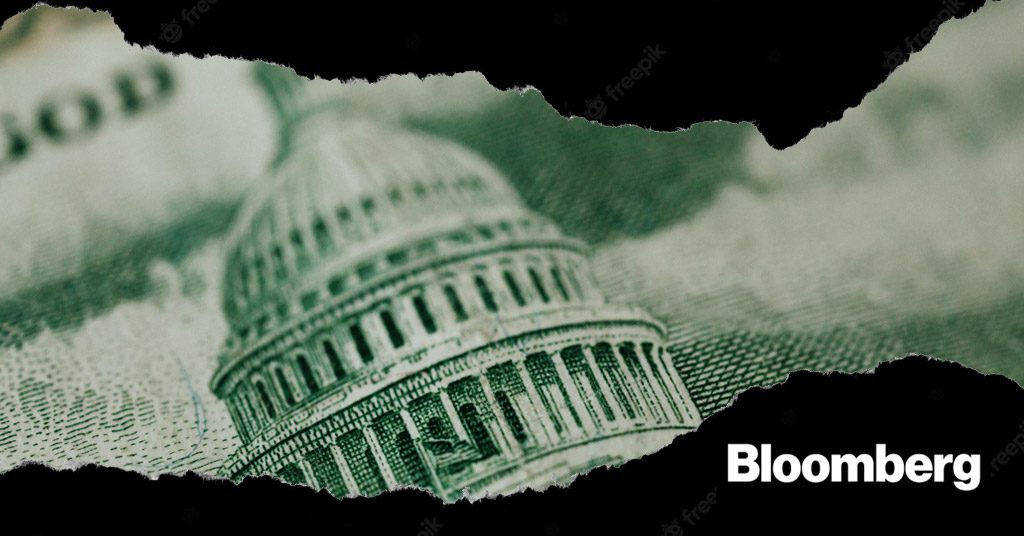
Bloomberg: US Supreme Court Limits Penalties for Not Reporting Overseas Accounts

Summary
The US Supreme Court has ruled in favor of Alexandru Bittner, throwing out a $2.72 million fine due to failing to file reports listing foreign bank accounts. The ruling limits the maximum penalty to $10,000 under the Bank Secrecy Act, which had been contested by the Biden Administration. The ruling has wider implications, with many Americans living abroad giving up their US citizenship due to the Foreign Account Tax Compliance Act.
According to Bloomberg, in a 5-4 ruling, the US Supreme Court has scaled back the federal penalties for failing to file required reports listing foreign bank accounts, throwing out a $2.72 million fine imposed on Alexandru Bittner, a businessman living in Romania. The ruling limits the federal penalty under the Bank Secrecy Act to $10,000, a decision that could potentially aid Americans living abroad who struggle to access financial services.
Federal penalties for failing to file foreign bank accounts
The US Supreme Court scaled back the federal penalties for failing to file required reports listing foreign bank accounts in a ruling likely to help some Americans living abroad.
A $2.72 million fine against businessman Alexandru Bittner for failing to file reports for five years while he was a resident of Romania was overturned by the justices on a 5-4 vote. Bittner contended the maximum penalty under federal law is $50,000.
Bank Secrecy Act
The Bank Secrecy Act, a statute that requires US citizens and residents to disclose their foreign interests in order to fight tax evasion and money laundering, was at the center of the controversy. For unintentional violations, the law authorizes penalties of as much as $10,000.
The Internal Revenue Service (IRS) came to the conclusion that Bittner had broken the law 272 times, once for every unreported account over the course of those five years. Bittner claimed that he only broke the law five times total, once for each annual report he neglected to submit.
Justice Neil Gorsuch supported Bittner’s interpretation of the law in his opinion for the court.
“Best read, the Bank Secrecy Act treats the failure to file a legally compliant report as one violation carrying a maximum penalty of $10,000, not a cascade of such penalties calculated on a per-account basis.”
FBAR
Bittner, a dual citizen of the US and Romania, was obliged to submit an FBAR for the 2007–2011 time frame at issue in the case. The government’s approach, according to Bittner and his allies, leaves taxpayers open to severe fines for duties that many people are unaware they have.
The Biden administration supported the higher penalties by stating that the government has a specific interest in each overseas account. The administration cited a clause that exempts individuals from fines if a violation was the result of “reasonable cause” and claimed the statute affords the Treasury Department discretion to impose a penalty lower than the maximum when necessary.
Tax compliance issues for Americans living abroad have increased in the past decade, pushing many Americans to give up their passports. Congress added another set of paperwork starting in 2014 with the Foreign Account Tax Compliance Act (FATCA).
Taxation based on citizenship
The U.S. and Eritrea are the only two countries in the world that tax people based on citizenship, rather than where they live. The result of all the compliance hurdles has meant that many Americans living abroad have trouble accessing bank accounts, mortgages, and other financial services because institutions don’t want the hassle of dealing with the US bureaucracy.
In contrast to the few hundred who used to do so a decade ago, before the Foreign Account Tax Compliance Act (FATCA) law went into effect, thousands of people now renounce their US citizenship each year.
Why is Americans Overseas sharing this news?
We receive daily inquiries from individuals who are taken aback by the requirement to file a tax return in the United States. It can be shocking, unimaginable, and quite frightening when you first become aware of it. As a logical follow-up, many people ask, “What happens if I don’t comply?”
American citizens who fail to comply may face exorbitant fines. Daan Durlacher, one of the founders of Americans Overseas, has been advocating for a permanent solution with local and European governments since 2015. Many people are unaware of the laws and regulations and are caught off guard at the most inconvenient times.
Some governments have their own channels, mostly on the internet, where information on FATCA legislation is available. Additionally, an increasing number of banks have this information readily accessible. Americans Overseas is continuing to fight for a solution, better information dissemination, and an end to these types of fines.
Need more information on overseas bank account reporting?
We, the founders of Americans Overseas, were born in the Netherlands and obtained our American nationality through our (American) mother. When we heard about this for the first time around 2013, we were in total disbelief (it can’t be true!), anger (how can they do this?), fear (am I going to get fined or pick up other problems?), and panic (what should I do?).
It is (unfortunately) true that there is an additional American tax levy. But there’s no information from the local government, and when approached, the consulate referred us to the IRS, and the IRS was impenetrable.
That’s why we started this initiative to help people from all over the world by providing proper information to avoid unnecessary panic, and offering help free of obligation and free of charge. If needed, we have a network of affordable professionals (accountants) who can help you with your tax obligations.
If you have more questions about the US exit tax and the US tax obligation, you can contact us at Americans Overseas.
Contact us for more information
Sources:
Case Bittner v. United States, 21-1195
Frequently asked questions
Understanding the US tax system, the obligations, and all the additional terms can be difficult. Especially if one lives outside of America. Is your question not answered? Contact us.
-
Who is required to file taxes in the US?
U.S. citizens and resident aliens who live abroad are generally required to file a federal income tax return and pay taxes on their worldwide income.
Read more... about Who is required to file taxes in the US? -
Do US citizens living abroad still have to file taxes in the US?
Yes, US citizens are required to file taxes on their worldwide income, regardless of where they are living.
Read more... about Do US citizens living abroad still have to file taxes in the US? -
How can I cash my US check?
Received an American check? You can cash your check in the following ways: cash the check at your own bank, transfer to another person (endorsement), cash checks using an online service or cash the check by another bank.
Read more... about How can I cash my US check? -
Are there any special tax forms required for US citizens living abroad?
US citizens living abroad may be required to file Form 2555 and/or Form 1116 to claim the foreign-earned income exclusion.
Read more... about Are there any special tax forms required for US citizens living abroad? -
What is FBAR filing?
FBAR (Foreign Bank Account Report) filing is the requirement for certain U.S. individuals and entities to report their foreign financial accounts to the Financial Crimes Enforcement Network (FinCEN) of the U.S. Department of Treasury. The FBAR filing requirement applies to U.S. persons who have a financial interest in, or signature authority over, one or more foreign financial accounts if the aggregate value of those accounts exceeds $10,000 at any time during the calendar year.
Read more... about What is FBAR filing?





